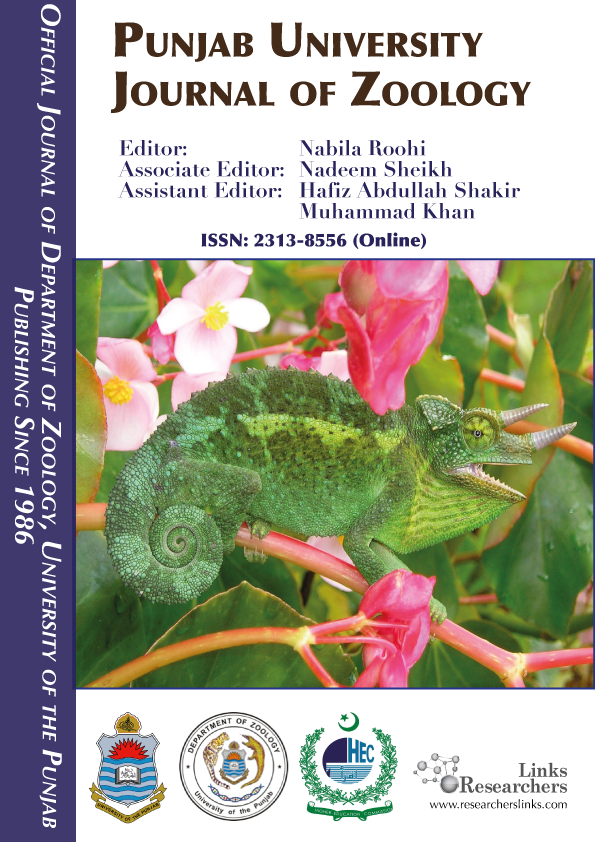Residual effect of lambda-cyhalothrin on abundance of insect pollinators in marigold field patch
Residual effect of lambda-cyhalothrin on abundance of insect pollinators in marigold field patch
Residual effect of lambda-cyhalothrin on abundance of insect pollinators in marigold field patch
Hafiz Muhammad Tahir1*, Zafar Iqbal Khan2, Saira Batool2, Kafeel Ahmad2, Salma Begum2
ABSTRACT
In the present residual effects of lambda-cyhalothrin on the abundance of insect
pollinators was recorded under field and a semi- field conditions. Recommended
dose of lambda-cyhalothrin (0.093gm/ml) was used. The number of different
pollinators that visited the marigold plant before and after insecticidal spray was
recorded. In semi-field experiment, honey bees were exposed to insecticide treated
plants for one hour. The mortality rate of honey bees in the control and insecticide
exposed group was compared. Overall, a significant decline in plant pollinators was
observed after application of lambda-cyhalothrin on the patch of marigold plants.
Lambda-cyhalothrin caused significant mortality (15/20=75%) in honey bees in
semi-field experiment. It is concluded that lambda-cyhalothrin is highly poisonous
to insect pollinators; therefore its use should be minimized to protect the population
of insect pollinators.
To share on other social networks, click on any share button. What are these?







